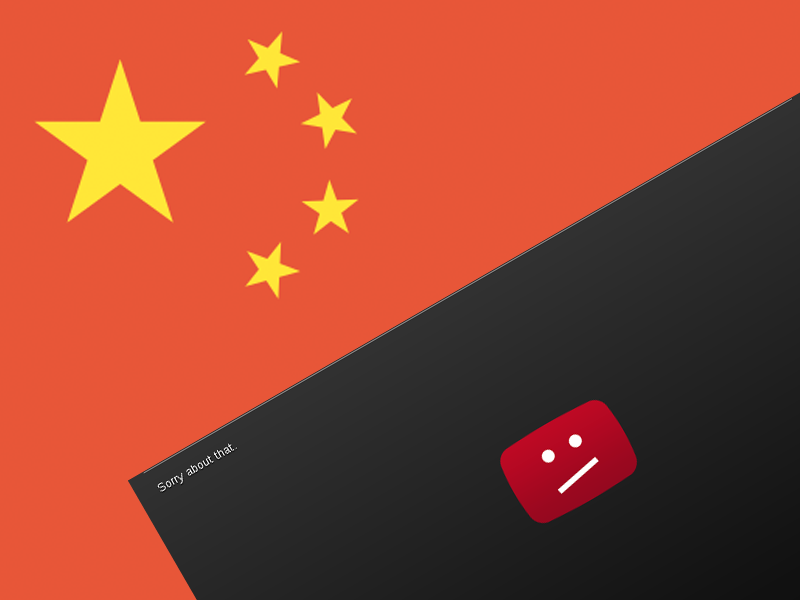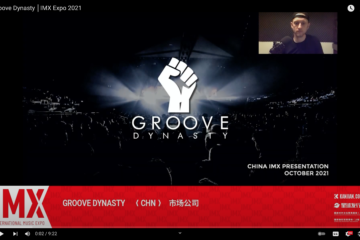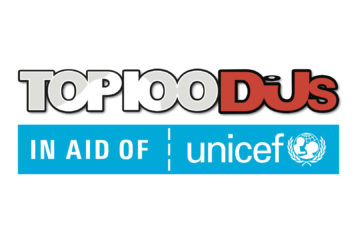One bit of information you’ve likely heard countless times: Western social media platforms are all blocked in China. International news outlets, tech blogs, and travelers often repeat it, though few know the meaning of that statement, or what it means for artists and brands that hope to do business in China.

The Great Firewall & Censorship
Yes, China maintains tight control over its internet, in every sense of the term. It blocks access to many popular sites, often censors content on the rest, and in any case requires phone number, ID, or real name authentication for local apps. I know what you’re thinking – how does anyone live? In reality, Chinese users don’t care much, nor have need to access these sites on a daily basis, and the ones that do use a VPN when they want. Nearly every platform you use in the US or Europe has a Chinese equivalent, or a platform that locals are accustomed to using instead. Thus, doing any business in China requires careful decisions about which platforms to use and the type of content you are sharing.
Marketing in China
These restrictions mean that artists and companies need a clear strategy to enter China, it is not as easy as just registering on another platform. Furthermore, it means that if you do not have an official presence on Chinese platforms, your image in China is at the mercy of those who post about you – people who go looking for it will only find influencers (called KOL’s in China) or people taking your content for their own pages. There may be some superfans who will use a VPN to visit your foreign pages, or even fan pages that will post your music, videos, or photos on a dedicated account – but is more difficult to reach the masses, and to keep fans following day-to-day goings on and the latest news.
Across the social media landscape, there are several platforms that are the most commonly used among in China, each have their own focus and best content, ranging from standard feed-based social media updates to music and video platforms of every niche and style. Below are the most relevant and useful platforms for fans, musicians, companies, and anyone in the music industry to be active on, and strategies for success.
Weibo / 微博
Weibo (http://weibo.cn) is similar in many ways to the American platform Twitter. There are obvious similarities in content and form – both are (mostly) chronological, feature short posts with photos, videos, links, hashtags, and the like. But in my opinion the similarities go well beyond function.
As of 2017, Weibo has actually surpassed Twitter in terms of its user base. According to the BBC, Weibo has 340 million active monthly users, 30% up on the previous year. About 154 million people use the site daily, 91% of whom access it via mobile.
Other experts might tell you that Weibo’s influence has gone down in the last few years or that the engagement on the platform can be very low compared to other platforms. While this is undoubtedly true, I don’t think it means you should be using the platform any less. For many artists or companies, Twitter is not the “hot spot” for marketing like it used to be. There are fewer new users, fewer teenagers sharing selfies, and fewer engagements than the photo or video heavy platforms like Instagram. But try telling Donald Trump that Snapchat is the best marketing tool in 2018, or promoting your blog posts using Instagram. You get the idea.
Weibo still has it’s power, even if just in the idea that fans will expect you to have a presence there. And while the user base may not be the most active, it’s still a great place to have an official feed, and still a valuable place to reach new fans via advertising and boosted posts. In general, it remains one of the best general-use social media platforms in China.
 NetEase Cloud Music / 网易云音乐
NetEase Cloud Music / 网易云音乐
A newer player in the social media sense, NetEase has had it’s foothold in China for many years as the country’s largest gaming platform and news aggregator, and as one of the biggest gaming platforms. While the music arm of the company known as NetEase Cloud Music (http://music.163.com) is newer, and has fewer users than the Tencent competitors like QQ Music, the social features it has makes it invaluable for reaching your fans and getting engagement on your content.
NetEase has a huge userbase, reaching 400 million monthly active users at the end of last year, a 44% growth over the year before. As reported by MusicAlly, “the company also says that its users are skewed towards the 15-35 year-old demographic in China’s tier one and tier two cities, with those listeners creating 620k playlists and posting 1.5m comments every day.”
In form, NetEase is like Spotify, but with a Facebook feed built into the artist pages. It’s got a massive and busy comments section on all music and video on the platform. Not only can you use it to make daily status updates as you do on Weibo, but you can reach more users by commenting on tracks, making and sharing playlists, and uploading mixtapes and extra content. NetEase is very media heavy, and does not allow links to other platforms in its posts.

Other Music Platforms
QQ Music: http://y.qq.com
PYRO Music: http://pyromusic.cn
More info coming soon.
Youku / 优酷
An industry standard for video, Youku (http://youku.com) is in many ways not much more than a YouTube equivalent. It recently merged with Tudou (http://tudou.com), so it has a large selection of movies, TV shows, music videos, and more, and is undoubtedly where you’d expect to find an official presence for many artists and brands. However, over the last few years, it is much less ‘hip’ for artists and DJs, and it can be very difficult place to gain a following or get plays on your videos. recommend official channels to catch users who are searching on those platforms, but don’t promote video on the platform strongly in many cases, and often prefer to share video content directly on the two platforms above.
Other Video Platforms:
iQIYI: http://www.iqiyi.com/
Bilibili: http://bilibili.com
More info coming soon.
Wrapup
There are several other platforms not discussed here, for niche genres and user segments, each with their own purpose. Future blog posts will dive even further into these platforms, and outline best practices and strategy for Weibo, NetEase Cloud Music, and Youku.
Stay tuned for more or join our newsletter.



1 Comment